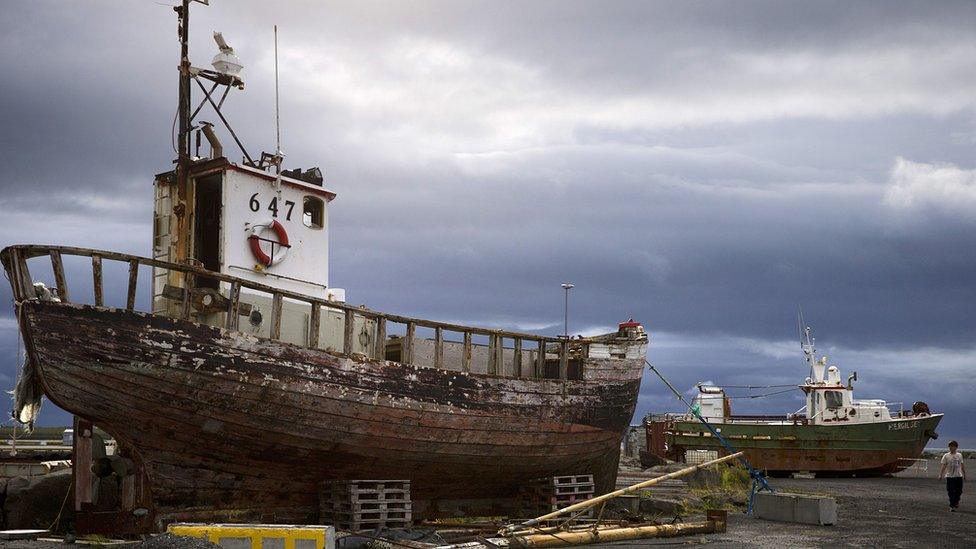Iceland: Fishy tradition leaves bad taste in the mouth
- Published

While fishing is a huge part of the Icelandic economy, it appears locals prefer their fish to be fresh
People in Iceland appear to be shunning one of the country's more pungent Christmas traditions, it's been reported.
Up to two-thirds of Icelanders say they've no intention of eating rotten skate this year, the reports, citing a poll by local market research company . According to Iceland Monitor, the eating of "kaest skata" at Christmas was once unmissable, but now only around 35% say that they'll be tucking in this year, a fall from 42% when the same survey was carried out two years ago. Iceland's younger generation seem particularly averse to the delicacy, with four-fifths saying they'd refuse to touch it.
There's almost no escape from the pungent smell of kaest skata in Iceland at Christmas, Jon Kaldal writes in Visir newspaper's . "Few things create a wider rift in the nation than the tradition involving this ammonia-smelling dish, which has been described as eating rotten fish," he writes. Rather than being left to rot, the fish is actually fermented and left to cure for several months, leaving it with its signature, divisive, taste. While very few people eat the fermented fish all year round, 23 December is the day of St Thorlak Thorhallsson, Iceland's patron saint, when it's traditionally served with potatoes and a shot of the locally-brewed spirit Brennivin to mark the first day of Christmas.
Next story: Turkish forests seek to restore Ottoman glory
Use #NewsfromElsewhere to stay up-to-date with our reports via .